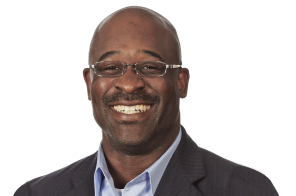Like many of you, I am still devastated by the senseless killing of George Floyd in Minneapolis. My heart goes out to Mr. Floyd’s family and all those impacted by discrimination and racism.
For many of us in healthcare, racism is a deeply personal issue. As a Black American of Jamaican-Canadian decent, I know all too well what Mr. Floyd may have felt in his final 8 minutes and 46 seconds. During my junior year in college, I was choked to the point of unconsciousness by a member of the local police department. It was an all too typical case of mistaken identity, and fortunately, witnesses stopped the officer before it was too late.
Health disparities signal persistent discrimination
Twenty-five years later, I’d like to believe things are better. However, as a practicing emergency physician in an underserved rural community, I still confront the effects of systemic discrimination every day. Like Mr. Floyd, some of my patients are victims of violence. But far more often, consequences of healthcare prejudice manifest itself in the form of treatment disparities in underrepresented populations.
Across the U.S., these health disparities continue to afflict minority communities. Black men have the shortest life expectancies in the country, while black women and babies have the highest maternal and infant mortality rates. And in recent months, COVID-19 has killed African Americans at more than twice the rate of the general population.
“In healthcare, we have the unique ability to change the health and course of a patient’s life. But we often forget we also have the ability to improve the health and progression of our society. ”
Imamu Tomlinson, MD, MBA
Chief Executive Officer
Why do health disparities happen
To explain these discrepancies, the healthcare industry has coined the term “social determinants of health.” Research suggests that where people live, what they eat, and their socioeconomic status can impact as much as 90% of their health. There are several all-too-common obstacles people of color face when accessing healthcare:
- Lack of cultural competency
In 2018, African Americans, Hispanic Americans, and Native Americans made up more than 30 percent of the U.S. population but less than 10 percent of practicing physicians. As a result, people of color often receive care from providers that may not understand the nuances of their history, culture, or experiences.
- Poorer patient experience
Research finds that doctors are less patient-centered, more “verbally dominant,” and show less empathy in end-of-life conversations with patients of color. In addition, many providers struggle with language, cultural and biopsychosocial barriers that make it difficult for patients to feel heard and secure in their healthcare decisions.
Many minority patients lack appropriate access to primary, preventive, and even tertiary care in their communities. Unfortunately, because of atrocious experiments like Tuskegee – inappropriately treating syphilis with placebo to document the natural course of the disease – minority communities have lost trust in the healthcare infrastructure.
How can we be better?
1. Examine personal biases
This means accepting our responsibility to reflect inwardly – to assess our subconscious and conscious biases honestly. For real change to happen, we must then educate ourselves and recognize how our beliefs, philosophies, communication, actions, and inaction influence and impact others.
Through this self-exploration, we must also become comfortable holding biased individuals and organizations accountable. There is no place in healthcare for stereotyping, bigotry, or prejudice toward patients who trust us with their health.
2. Increase diversity at all levels of the healthcare workforce
We must actively increase the diversity of every level of the healthcare infrastructure, including staff, nurses, clinicians, and leaders. While representation isn’t a magic bullet, it’s an essential first step. To effectively do this, we must actively carve pathways to professional and leadership positions in underrepresented areas of the healthcare system. This requires the elimination of potential barriers and outreach through pipeline programs, mentorship, and specialized recruiting efforts.
Time is running out
I was fortunate and am forever grateful for the bystanders that stopped the police and allowed me to survive my “I can’t breathe” experience. Years later, I became a physician in an organization with an African American CEO and an accompanying strong commitment to diversity. I had the opportunity to be mentored – not just by another African American CEO, but by a diverse group of supportive leaders in the organization. I’m proud to say this is the same organization of which I am CEO today.
The tragic events of 2020 underscore what we have always known: that we each have a responsibility to build an inclusive community with diverse backgrounds and perspectives. COVID-19 has been a cruel reminder that we are only as healthy as the most vulnerable among us. In healthcare, we have the unique ability to change the health and course of a patient’s life. But we often forget we also have the ability to improve the health and progression of our society. Together, we can and will change the world!
























